24 Hours Hotline: +86 137-3541-1378
Email:[email protected]
24 Hours Hotline: +86 137-3541-1378
Email:[email protected]
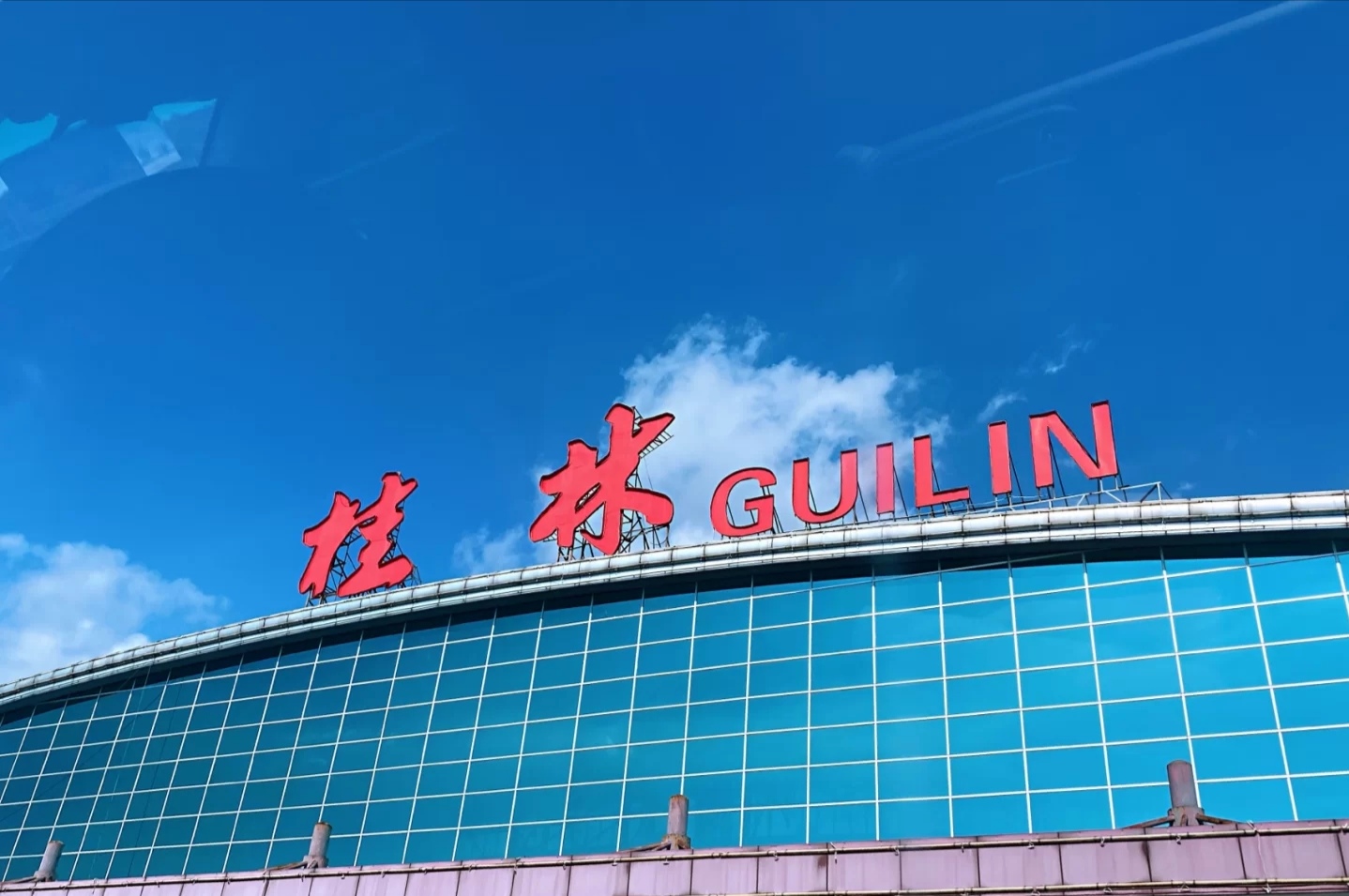
Introdution of Guilin
Located
at the northeast of Guangxi Province, Guilin is one of the oldest
cities there; therefore,there are sites of the Neolithic Age dating back
to about 10,000 years ago. Guilin City was set up in 1940. It is not
only a famous tourist destination but also a renowned historical and
cultural city in China, eulogized as “the most beautiful landscape on
earth”.
Moreover, its unique karst landform and the beautiful Lijiang River make it the world-famous tourist resort. The hills stand up to the sky with different shapes; the water on Lijiang River winds and twists like a bright mirror; there are many hills in which there are many splendid caves; the fantastic rocks in caves are extraordinary as if done by the spirits. In short, its beautiful scenery can be summarized as “strange mountains, limpid waters, beautiful rocks, and odd caves”. Naturally, countless tourists both at home and abroad are deeply drawn by its scenes, local customs, and history and culture.
History of Guilin
Guilin
is a beautiful natural scenery city that has an astonishing karst
landscape, so people always say that the scene in Guilin is the best in
the world. In fact, with the exception of its scenery, Guilin City also
boasts a long history that can be traced back for 10,000 years. In the
ancient times, Guilin belonged to Yue. But in the Warrior States Period,
it belonged to Chu. Since Ling Canal that was the famous water
conservancy project was built in214BC, Guilin has been an important
county on transportation between Zhongyuan and Lingnan. In 111, it got a
name Guilin city which belonged to Shi'an county and Lingling canton.
And till now, it has 2000 years' history. In Ming and Qin dynasty, it
became an official residence.
In the
Song Dynasty (960-1127), Guilin area covered the territory of present
Hainan Island.As for the Ming (1368-1644) and Qing (1644-1911)
dynasties, the important position of the Guilin region both in economy
and politics was unshakable. Benefiting from the solid political
situation, the local culture also received further development during
this period. From 1911, Guilin became the capital of Guangxi Province.
By experiencing the liberation in 1949, Guilin was administratively
divided as a part of Guangxi Zhuang Minority Autonomous Province. In
1981, this ancient city was listed by the State Council as one of the
four cities (the other three being Beijing, Hangzhou and Suzhou) where
the protection of historical and cultural heritage, as well as natural
scenery, should be treated as a priority project. And since 1998, Guilin
was re-divided by including more districts and formed as the present
one.
Guilin Attractions
Li River
Li
River, the most popular at scenic area in China, is located in Guilin.
It originates in Cat Mountain and flowing 427km to Xijiang River at
Wuzhou. The Li River has been eulogized as a fascinating scroll of the
traditional Chinese painting by celebrities of ancient and modern,
domestic and overseas.
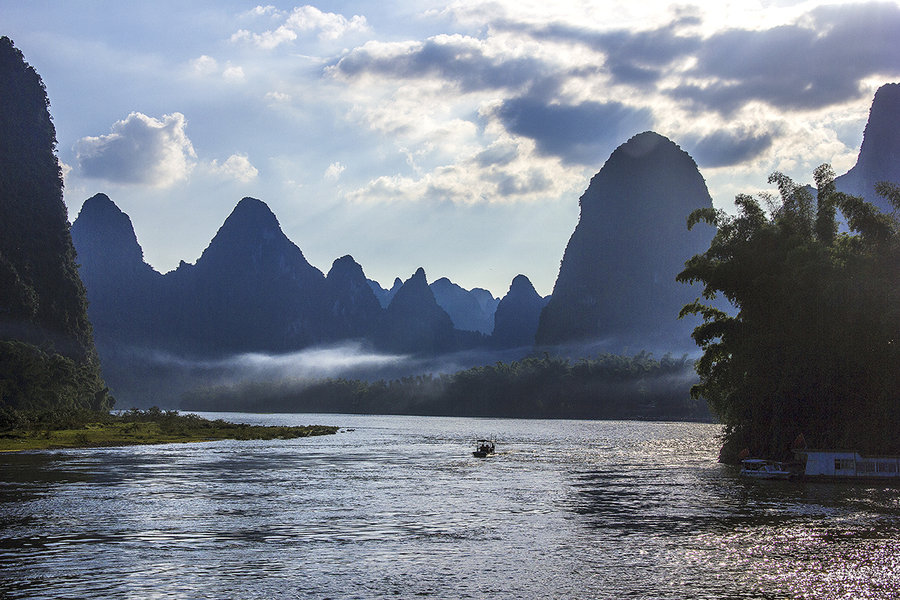
Yulong River
Yu
Long River originates from Guli River in Lingui County, running through
three township and more than 30 villages to south. It ranks second only
to Li River in Yangshuo County.
The
river is about 43km long, 38m to 61m wide and 0.5m to 2m deep. The
scenic area along the Yu Long River is from the Yu Long Bridge in Baisha
Town to the Gongnong Bridge nearing the Big Banyan Tree. The crystal
river reflects green bamboos and various green hills of both sides,
forming a picturesque scroll.
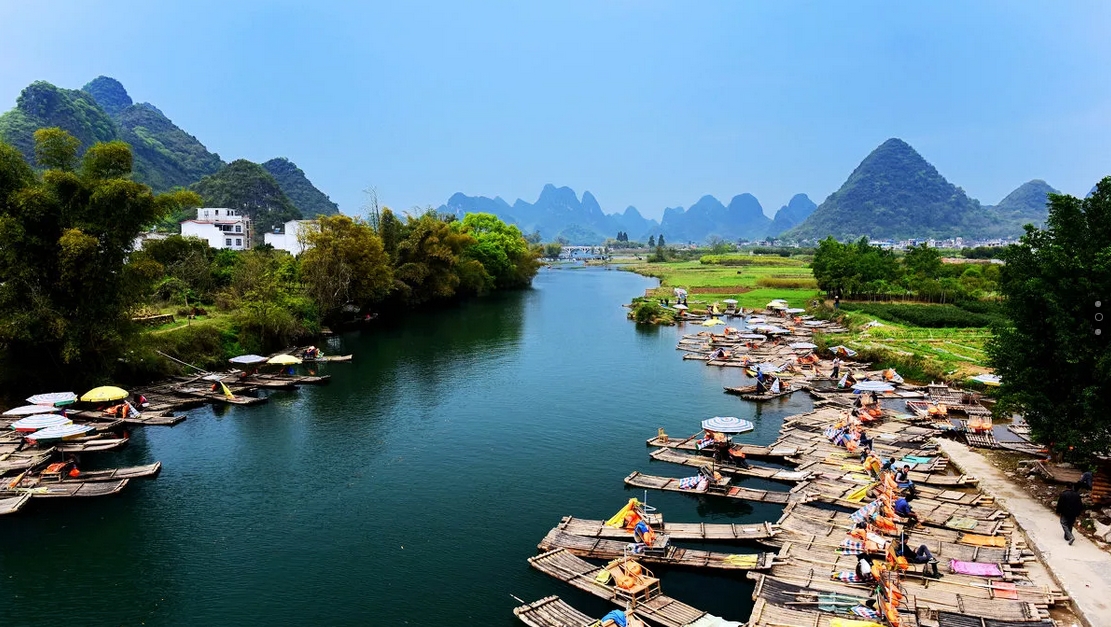
Seven Star Park
Seven
Star Park is the largest park covering an area of 134 hectares situated
on the east bank of the Li River. Major spots in the park include Camel
Hill, Seven Star Cave, Flower Bridge, Crescent Hill, Putuo Hill, Guihai
Stele Forest and others.
On the main gateway to the park lies the elegant Flower Bridge. It was originally constructed in the Song Dynasty and later was renovated in Ming Dynasty. The bridge was surrounded by flaming wide flowers when spring coming in ancient times, hence the name. But unfortunately, now visitors can not find any, since the flowers reduced greatly in Qing Dynast.
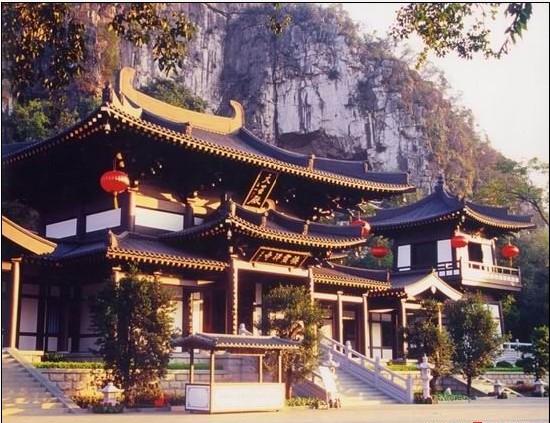
Folded Brocade Hill
Folded
Brocade Hill (Diecai Shan) is one of Guilin's most climbable peaks
situated very close to the city center in the northeast of Guilin, near
the Lijiang River. The name was inspired by the colorful limestone
formations covering the hill, which resemble skeins if silken thread.
The Brocade Hill, the Duxiu Peak and the FuBo Hill Stand like the three
legs of a tripod. All these three hills are the famous tourist
attractions of Guilin. Folded Brocade Hill covers an area of
approximately 2 square kilometers. It consists of Yueshan Hill,
Look-on-All-Direction Hill, Crane Peak and Bright Moon Peak.
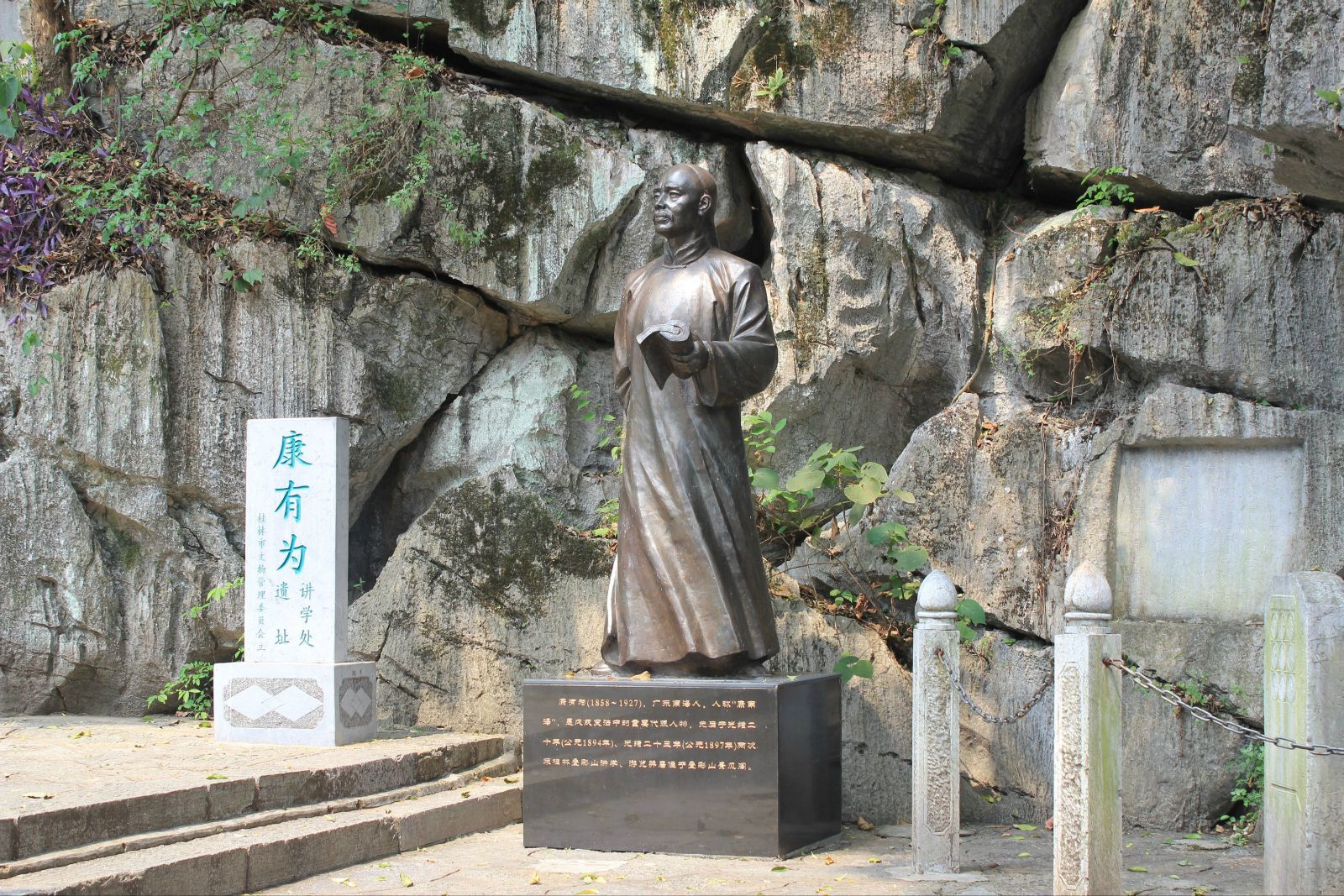
Elephant-trunk Hill
Elephant
Trunk Hill is one of the Lijiang River's most famous sights. The hill
is situated on the western bank of the Lijiang River, to the southeast
of Guilin. It looks like an elephant, dipping its snout into the Lijiang
River, hence the name "Elephant Trunk Hill". This sight isvery
representative of the landscape around Guilin and is a symbol of Guilin
itself. A park and a Ming Dynasty pagoda are found on and around the
Elephant Trunk Hill. Originally named "Li Hill", "Yi Hill" and "Chenshui
Hill", the hill has a history of 3.6 hundred million years. Resembling
elephant leisurely sucking water from the river with its long trunk,
this hill is famous as Elephant Trunk Hill for hundreds of years.
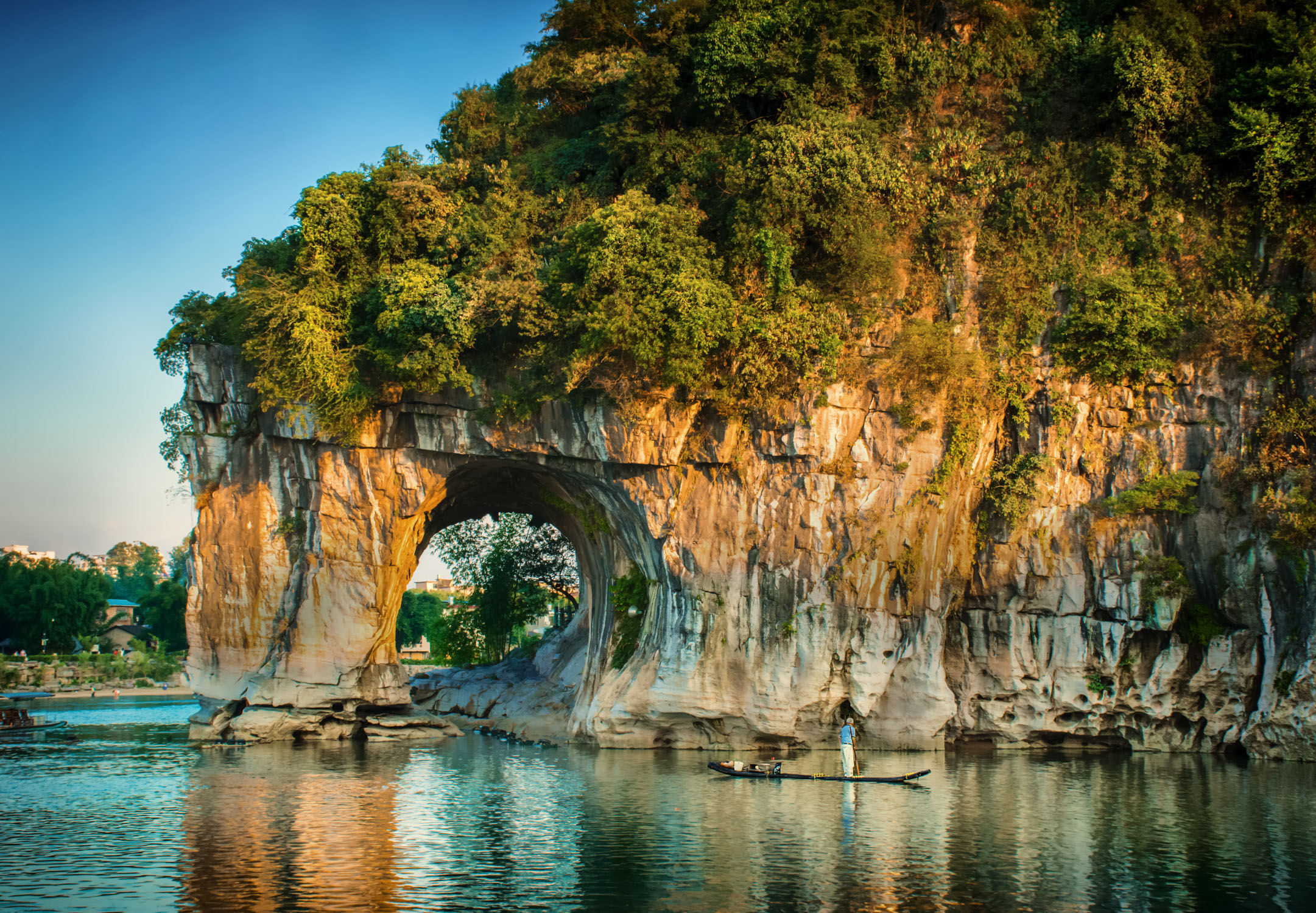
Daxu Old Town
Daxu
Old Town is situated on the east bank of the Li River, 23 km (14.3
miles) southeast of Guilin City. Daxu is a time-honored town with well
preserved traditional Chinese architecture and stone-paved streets. It
has a history of more than a thousand years, drawing people from all
over for a glimpse of ancient China. ect...
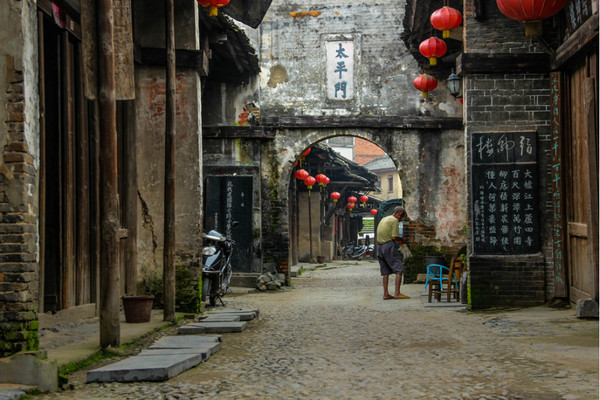
Guilin Cuisine
Guilin Rice Noodles:
The
noodles of Guilin are famous throughout China and can be found in
places such as Shanghai and Hong Kong. Of course for the most authentic
Guilin Rice Noodles, visitors must eat them in their hometown, Guilin.
The rice noodles are made from oil and rice flower. The noodles are cooked in broth and served in a bowl of soup made from pork, beef, garlic, peanuts, peppers, and radishes. The peppers are added by the diner, so visitors who do not like spicy food can simply not add it.
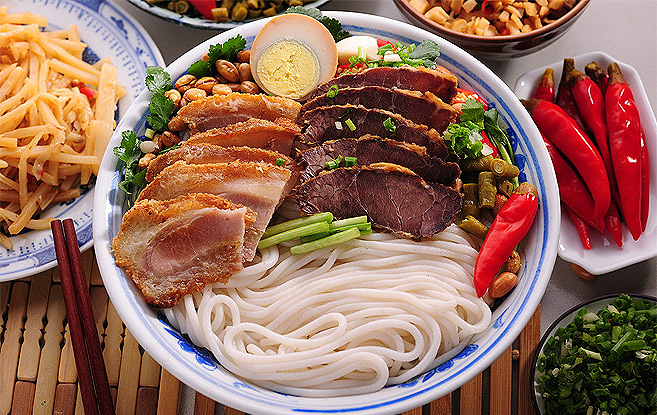
Chicken with filed Snails:
In
Chinese, these snails with their distinctive spiral shells are known as
"Field Snails" as they are often found in the rice paddies or fields.
They are also found in the River Li and its tributary, the River Yulong?
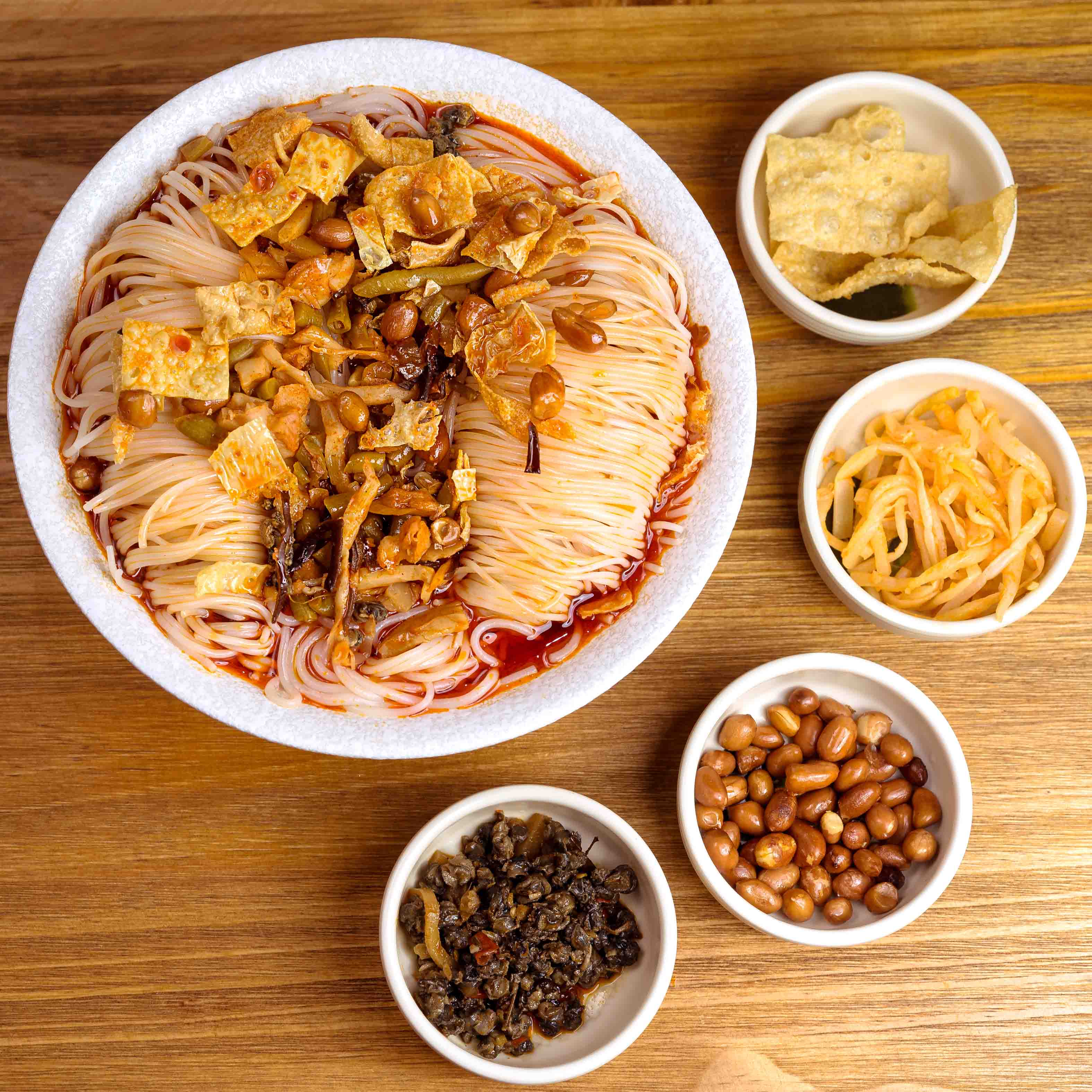
Yangshuo Beer Fish
Yangshuo
Beer Fish is Yangshuo's most famous dish. It is made from fresh caught
Li River carp. The fresh fish is fried in a wok along with beer, hot and
green peppers, garlic, onions, celery, tomatoes, soy, and sugar.
Visitors are amazed at how delicious the fish's skin is and how fresh
and tender the meat is. Eating Yangshuo's beer fish will be an
unforgettable culinary experience.
Yangshuo's famous West Street has many restaurants serving this delicious dish. The Tao's Authentic Beer Fish, and The Older Sister of Peng's Beer Fish come highly recommended.
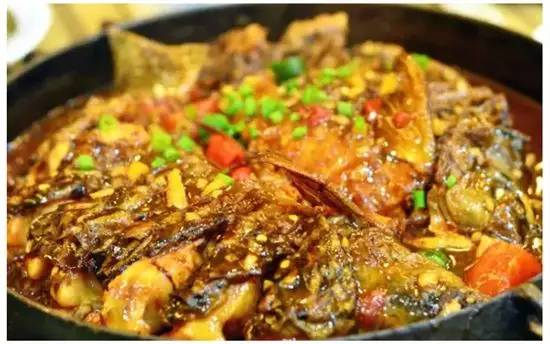
Zongzi - Guilin Snack
A
dumpling made of glutinous rice wrapped in bamboo leaves, Zongzi has a
history of over 2,000 years. It is most famous for its connection to
China's Dragon Boat Festival. This festival honors the great poet Qu
Yuan who lived in the Warring States Period (403-221 BC), who being
unhappy with the political situation committed suicide by drowning
himself. The local people fearing that Qu Yuan's body would be consumed
by fish threw Zongzi into the river to feed the fish.
Zongzi,
can be filled with a variety of fillings. There are bean Zongzi,
chestnut Zongzi, pork Zongzi, and lotus seed paste Zongzi, just to name a
few. In China different areas have different styled fillings. Guilin,
for example, has traditionally made Zongzi stuffed with taro, pork,
preserved pork, and chestnuts. The best part about this traditional
Chinese food is that it can be refrigerated and when wanted, just heated
in a microwave.
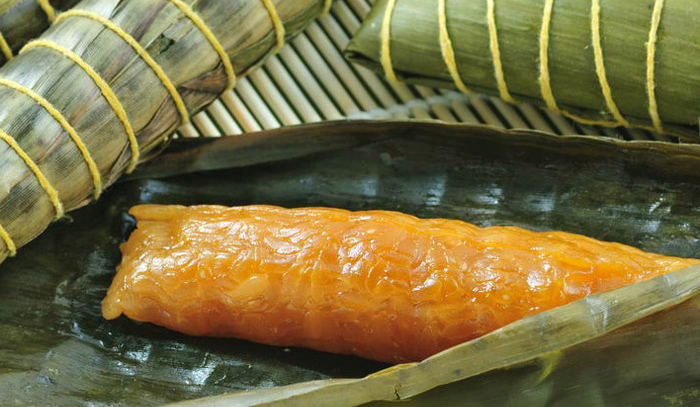
Culture
The
seven major characteristic cultures of historical and cultural Guilin:
prehistoric culture represented by Zengpiyan site; the ancient military
water conservancy culture represented by the Ling canal; Moya carved
stone and landscape poetry culture represented by Guihai Steles Forest;
seignior culture of the Ming dynasty represented by Jingjiang King’s
Tomb; Anti-Japanese War culture represented by southwestern opera and
play; Chinese revolution culture represented by the Eighth Route Army
Guilin offices former site and the Monument Park to Martyrs of the Red
Army who broke through the Xiangjiang River during long march; and
culture of former residence of celebrities represented by Li Zongren
Mansion and former residence, and Xu Beihong former residence.
Guilin
has developed tourism performing arts, cultural entertainment, cultural
tourism and cultural exchanges with other countries, such as 8
categories of culture industry, with "Impression Liu Sanjie", Yuzi
Paradise, Wutong Farmer’s Painting three national cultural industry
demonstration base. In 2011, Guilin won the honor of "The Most Chinese
Cultural City".
Best Time to Visit
Spring
(March to May): When the north of China still is covered with a thick
layer of snow in the early spring, Guilin has already become green. And
it is flower season and is the perfect time for outdoor activities. In
March, the average temperature is 13 degree, and sometime there are
rains at night.
Summer (June to August): Summer is the rainy season in Guilin, precipitation in this time accounts for more than one half of the total precipitation of the year. Therefore, traveling during this time, tourists should pay attention to bring umbrella. Though rain brings some inconvenience to tourists, it creates a hazy poetic imagery. Through the misty rain to see landscape of Guilin, tourists will have a feeling of fairyland.
Autumn (September to October) is perfect time to travel to Guilin. At that time, the air is fresh and the wave is smooth as glass when is the best time to see the reflection of mountains and peaks.
Winter (November to next February): the lowest temperature of Guilin is around 8 degree which makes people cold but it is not as braving freezing temperature as northern China. October of early winter, the average temperature is around 20 degree, and it is the season of sweet-scented osmanthus, different kinds of osmanthus decorated Guilin as a flower city and its fragrance spread all over the city. Owing to the climate, it is hard to see snow in Guilin.
Wechat: Chinaprivatetour
24 Hours Hotline:
+86 137-3541-1378
* Authentic Experiences: Genuine local experiences that immerse you in the true essence of Hangzhou and beyond.
* Safety First: Highest safety standards with secure activities and reliable transportation.
* Customizable Tours: Flexible itineraries tailored to your interests and needs.
* Local Expertise: In-depth knowledge of Hangzhou and China, offering exclusive insights.
* Professional Guides: Licensed bilingual guides with over 5 years of experience.
* Comfortable Travel: Experienced drivers and well-maintained vehicles for a smooth journey.
* Sustainable Tourism: Commitment to responsible tourism and supporting local communities.
* Customer-Focused: Personalized service and continuous improvement based on your feedback.
* Free Cancellation: Cancel up to 24 hours before travel for flexibility and peace of mind.
* 24/7 Support: Round-the-clock assistance for any questions or help needed.
1 to 1 tailor-made service from our professional travel advisors for the most sophisticated
Constantly excellent reviews for attraction, hotel and service Competitive price
Local experts provide quality tours Best selected knowledgeable local guides Authentic local restaurants
7*24 hours available to create you a worry-free tour. No Hidden Fees and absolutely no pressure to buy. Secured








Copyright © 2017 Hangzhouprivatetour.com All rights reserved.